Covid Scotland: How lockdown has left families with autistic children at breaking point
The lingering impacts of Covid-19 lockdowns have left families with autistic children at ‘crisis point’.
Hundreds of carers have faced their lowest points during the pandemic and many have reported experiencing depression and suicidal thoughts.
Advertisement
Hide AdAdvertisement
Hide AdMother-of-two from Edinburgh, Rachel Plummer, recalls feeling like she “could not go on” after her autistic son started physically harming himself and others.
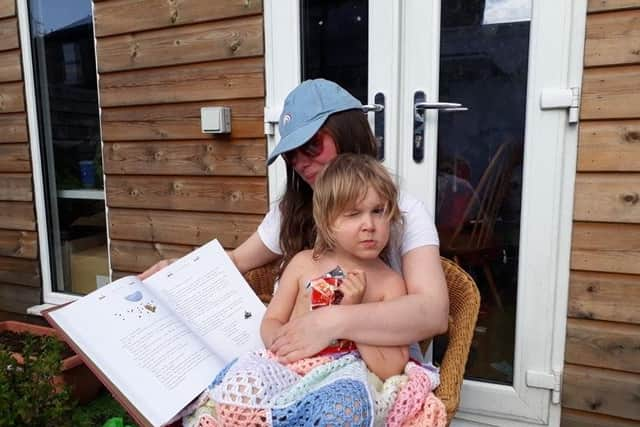

“I just wanted to die, it was too hard,” said the 37-year-old.
As the country locked down in March 2020, vital support for thousands of autistic children disappeared overnight.
Respite was cancelled, therapy appointments were postponed and the usual routines many autistic children live their lives around were lost.
This sent many into meltdown, including Ms Plummer’s five-year-old son Robin.
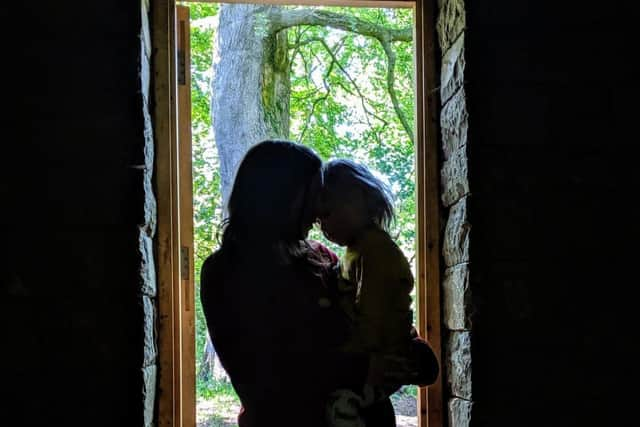

“He couldn't cope with the constant changes,” she told Scotland on Sunday. “Robin became incredibly violent during this time. He would bite and kick us and hit his head off the ground until it bled most days.”
During the long months of lockdown, the Plummer family was confined entirely to the house and Robin’s social skills regressed.
“Robin didn’t understand social distancing,” explained Ms Plummer. “He’s a friendly boy and wants to go up to people and hug them.
Advertisement
Hide AdAdvertisement
Hide Ad“We got a lot of looks and some people shouted at him for coming too close, in the end it was easier to keep him at home.
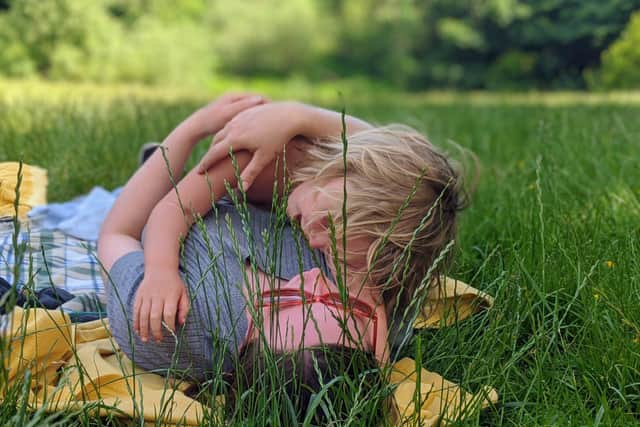

“This suited Robin because he struggles to socialise but it got to the point that he wouldn't even come out of his bedroom. All of the hard work we’d done before lockdown teaching Robin social skills was undone.”
Hundreds of autistic children are struggling
Robin is one of many children in Scotland whose development has been damaged by the impacts of Covid-19, claims a leading charity.
Director of the National Autistic Society Scotland, Nick Ward, said the pandemic has removed critical support for countless families leaving many children and their carers struggling.
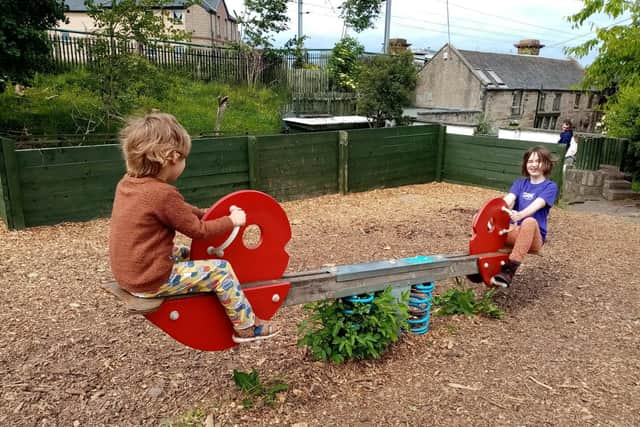

“Families across Scotland are at breaking point,” he said. “We saw the withdrawal of critical support for many families at the start of the pandemic and this combined with the challenges of home-schooling, the anxiety around Covid-19, the taking away of structure and important routines has seen many families reach breaking point.”
Mr Ward said the Scottish Government’s support for autistic children is “not good enough” and has called for the world's first autism and learning disabled commissioner to be appointed to the government.
“Someone needs to fight for the rights of autistic people and their families so that this situation doesn’t happen again,” he said.
“The SNP have committed to the commissioner in their manifesto and we call on the Scottish Government to prioritise it as soon as possible.”
Closure of additional needs schools had detrimental impact
Advertisement
Hide AdAdvertisement
Hide AdHome-schooling was particularly hard for children with autism to adjust to, with statistics showing 63 per cent of autistic youngsters missed going to school during lockdown.
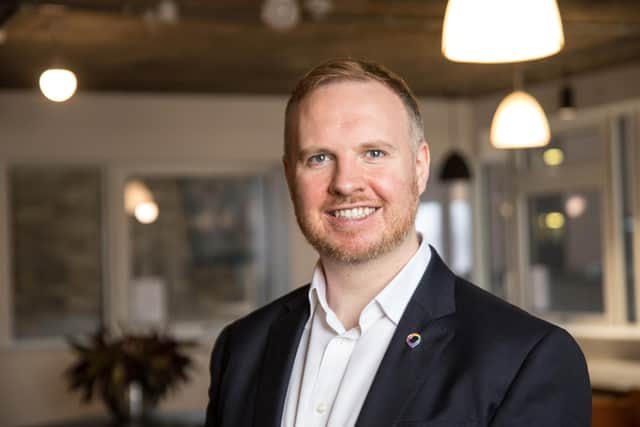

The figures from the Autism Centre for Education and Research also revealed that uncertainty around education caused higher levels of stress and anxiety in many autistic children.
One parent from Edinburgh, who wished not to be named, said teaching her autistic child from home was traumatic for her son as the home was not set up to support him.
“Home could not provide the same rigid structure as a special needs school,” she said. “I tried to set it up as his school would but I have other children, work and pets to deal with. My son needs a calm, organised routine and a busy home life can’t provide this 24/7.”
The parent said teaching her child at home was ‘impossible’ and she gave up after a few weeks.
“School does not mean sitting down and learning to spell,” she said. “It’s about learning life skills, like how to go to the shop, but during lockdown this couldn't happen."
Lockdowns drove carer to breaking point
For Ms Plummer, who suffered a mental breakdown in summer 2020 due to a combination of stresses, home-schooling was simply too much.
“Home-schooling Robin has been hugely hard and my mental health suffered a lot,” she said. “I had a breakdown towards the end of last summer. I just didn't think I could survive it anymore.
Advertisement
Hide AdAdvertisement
Hide Ad“I had to go to the doctors and get help and I’ve been on antidepressants since then.
“I remember Googling if any other parents of disabled kids felt like they couldn't go on and just wanted to die because it was so hard. I found so many people that felt the same.”
While Ms Plummer said she understood why the schools had to close, she became frustrated when mainstream schools opened before special needs schools.
“It felt like we were an afterthought,” she said. “Other schools reopened full-time and Robin was only in one or two days a week.”
Robin attends Redhall School, a special needs school in Edinburgh, which was only able to partly open between February and March 2021 due to government guidelines on social distancing.
The City of Edinburgh Council said it worked closely with schools to make sure children with additional needs were given the best possible support.
A council spokesperson said: “Throughout the pandemic blended learning continued in our special schools and staff had regular contact with children and families to support their learning.”
While this assistance was “well meaning” said Ms Plummer, she added that the introduction of blended learning did “more harm than good” for many disabled children.
Advertisement
Hide AdAdvertisement
Hide Ad“My son needs to know when he will be in school and the constant changes made this impossible,” she said.
Robin is now happily back in full-time education and his behaviour has improved significantly.
“As soon as he settled in so many of the issued reversed,” said Ms Plummer. “But I worry about what will happen if there is another lockdown.”
A Scottish Government spokesperson said: “We work in partnership with national charities, autistic led organisations and people with lived experience in all policy relating to autistic people. We worked closely with stakeholders in creating the Learning Disability and Autism Towards Transformation Plan which was published in March.
“We are committed to bringing forward in this parliament a Learning Disability, Autism, and Neurodiversity Bill, and to create a Learning Disabilities, Autism and Neurodiversity Commissioner through the new law. We will be working with key stakeholders and those with lived experience to shape this work.”
Comments
Want to join the conversation? Please or to comment on this article.